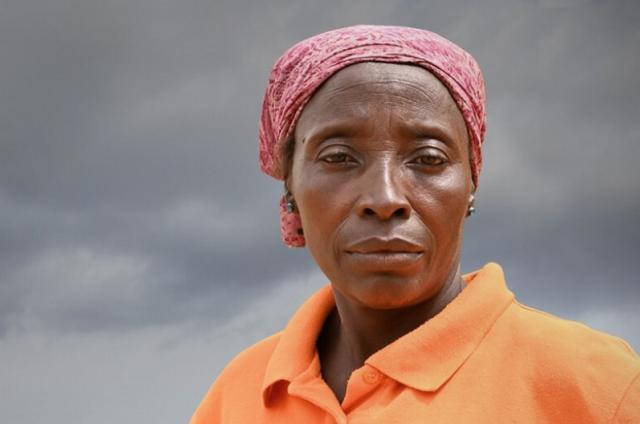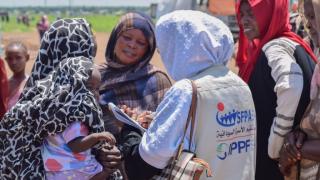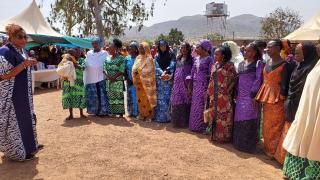5 Women Leading the Fight Against Sexual Violence in Conflict
5 Women Leading the Fight Against Sexual Violence in Conflict
Meet five courageous leaders advocating for justice and change
The International Day for the Elimination of Sexual Violence in Conflict, observed on 19th June, honours victims and survivors, as well as those dedicated to eliminating Conflict-Related Sexual Violence (CRSV). At Women for Women International, we know from decades of experience that CRSV has devastating, long-lasting impacts on women’s physical and mental health. Yet as global conflicts rise, this violence is increasingly used as a weapon of war and dismissed as unavoidable. A lack of action reflects a wider culture of silence and stigma that must be broken.
In the countries where we work, our partners, participants, Change Agents and local teams are leading grassroots solutions to combat CRSV - from implementing radio programmes in South Sudan to running mobile clinics in Ukraine where survivors can access critical care. They are daring to speak out, take action and push for justice.
Here are five remarkable women who, like our teams and partners, are leading the fight to end sexual violence in conflict and creating change for survivors around the world.
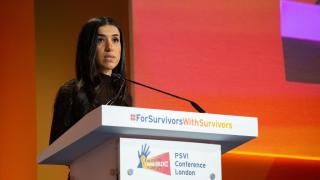
Nadia Murad
Yazidi human rights activist and Nobel Peace Prize laureate
Born in Kocho, Iraq, Nadia Murad is a Yazidi human rights activist who has become a global voice for survivors of sexual violence and genocide.
In 2014, she was kidnapped by ISIS and subjected to unimaginable abuse. After escaping, she spoke out about her experience, breaking the silence around conflict-related sexual violence. Murad went on to found Nadia’s Initiative, an organisation dedicated to rebuilding communities in crisis and advocating for survivors of sexual violence. Her efforts have brought international attention to the plight of the Yazidi people and survivors of war.
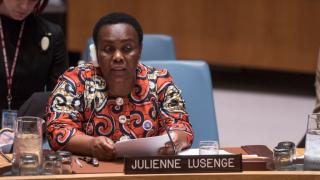
Juliene Lusenge
Women's rights activist and peacebuilder
Born in the Democratic Republic of the Congo, Julienne Lusenge is a tireless advocate for women’s rights and a leading voice in the fight against sexual violence in conflict.
Originally a radio journalist, she began documenting the stories of women who had survived rape and abuse during the Congolese civil war, using her platform to amplify their voices and demand justice. She co-founded the Female Solidarity for Integrated Peace and Development (SOFEPADI), a grassroots organisation that supports survivors of sexual violence and holds perpetrators accountable, and the Fund for Congolese Women, which empowers women through community-based initiatives.
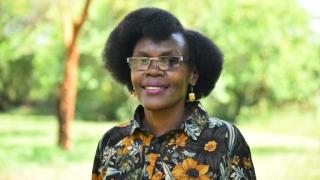
Caren Omanga
Kenyan activist and scholar
Caren Omanga is a Kenyan activist and advocate committed to ending CRSV in conflict and crisis settings.
With a background in international law and transitional justice, she has worked extensively to support survivors of sexual violence and promote accountability for perpetrators. As a researcher and policy expert, Omanga has focused on the intersections of gender, conflict and justice in Africa, particularly through her work at institutions like the African Leadership Centre and in collaboration with grassroots organisations. She is known for her survivor-centred approach to reform.
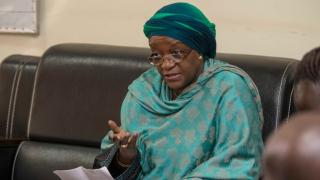
Zainab Bangura
Diplomat and Human Rights Activist
Zainab Bangura is a prominent Sierra Leonean diplomat and human rights activist who has dedicated her career to fighting CRSV.
As the former Special Representative of the United Nations Secretary-General on Sexual Violence in Conflict (2012–2017), Bangura led UN Action Against Sexual Violence in Conflict, a network of 24 UN entities working together to prevent and respond to sexual violence in war zones. She has visited the world’s most dangerous conflict areas, documenting abuses, amplifying survivors’ voices and pushing for justice. Bangura’s work helped bring global attention to the use of rape as a weapon of war, and she championed survivor-centered responses across policy and humanitarian sectors.
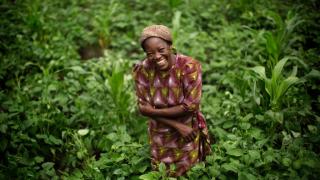
Sister Angelique Namaika
Congolese Catholic nun and humanitarian
Sister Angelique Namaika is a Congolese Catholic nun and humanitarian known for her courageous work supporting survivors of sexual violence in the Democratic Republic of the Congo.
As the founder of the Centre for the Rehabilitation of Women and Children, Sister Angelique has helped thousands of women and children who have suffered from the horrors of sexual violence and armed conflict. She provides survivors with shelter, vocational training and psychosocial support, enabling them to rebuild their lives.
read more
Read about how Dr. Asma Elnaeem and Dr. Hiba Ahmed are providing vital healthcare and support to women in Sudan amidst the ongoing conflict, showing incredible resilience despite immense challenges.
Bukola Onyishi, our Country Director in Nigeria, shares how gratuates of our year-long programme have taken the initiative to pass along their learnings to 475 women from diverse religious and ethnic backgrounds. Bukola says "Their commitment to sharing knowledge and fostering resilience has been nothing short of inspiring to me."
Each week, these trainers—graduates from our programme—brought the women together to teach them social and economic skills using participant handbooks, ensuring that the lessons they once received from Women for Women International continue to reach more women.
According to the latest UN figures, 305 million people will require humanitarian assistance and protection this year – five million more than last year. Our watch list below outlines eight humanitarian emergencies that we believe need special attention in 2025, specifically for the women and girls impacted.

